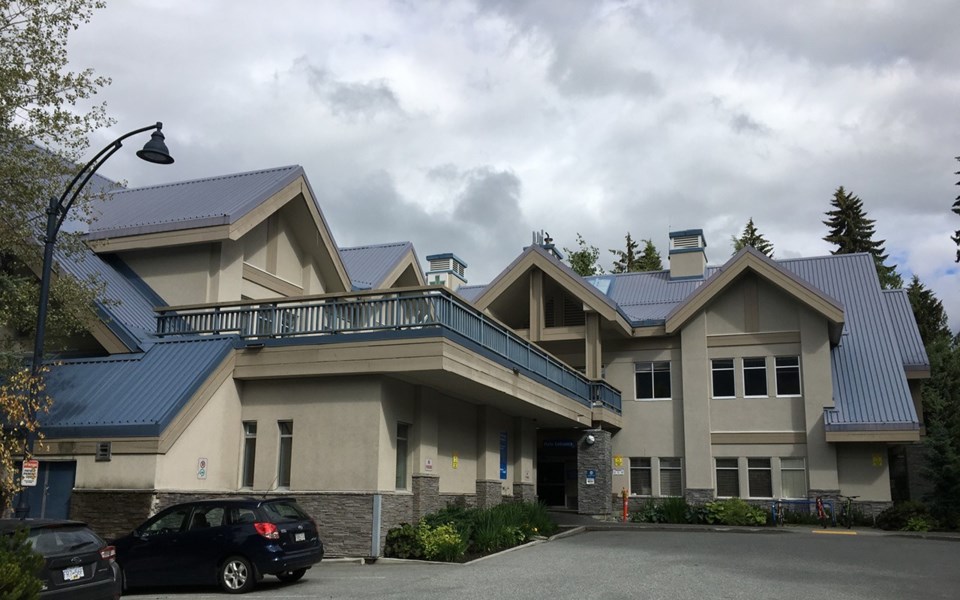With Whistler's ongoing housing, staffing and affordability issues, many are finding it difficult to access consistent, quality care.
While it's still possible to see a doctor for urgent medical care, finding a steady family doctor is another story.
Some, like Stacey Murl, have resorted to driving to Squamish.
"So at least now when they say, 'who's your family doctor?' I don't say I don't have one," Murl said.
"And it's not just Whistler—this is an ongoing big problem, especially in small towns."
Having a doctor who is familiar with you can make all the difference in the world.
"I've had an incident where I was having some internal bleeding, and I didn't know it, but Dr. (Cathy) Zeglinski, when she looked at me, she's like, 'Yeah, you need to go the hospital,' because she knew what I normally looked like," Murl said.
"So that was a big wake up call for us, that it's kind of essential to have somebody, as you're getting older, that does know what you look like."
Zeglinski closed her practice, Northlands Medical Clinic, last September due to unsustainable rental rates.
"It wasn't a huge clinic in terms of its size, but it saw a ton of patients, and those patients still need a physician," said Monica MacDonald, executive director with Sea to Sky Divisions of Family Practice, a provincial initiative that focuses on finding solutions for physicians in various regions of the province.
Doctors in Whistler are dealing with a range of issues, MacDonald said, including a lack of local specialist services, a lack of physical space and staffing.
"It's a challenge to all industries, it's not limited to physicians ... but when a doctor's office doesn't have frontline staff to assist them, they can't practice," she said.
"I think that it's time that we start looking at what is needed to support primary care in the community of Whistler. It is really a community amenity not unlike a police service that is fully functional and ready to serve the needs of the community, or a fire service that is in place and structured in a way that it meets the community's needs.
"These are private, independent businesses delivering a public service, and that model has been in place for a long time, it just doesn't seem to be functioning as well as it needs to to support the patients in the community."
Staff at the Whistler Community Services Society (WCSS) have been hearing about the strain as well.
"We're definitely receiving feedback from individuals with children that finding a consistent GP for them and their family has been really challenging," said executive director Jackie Dickinson.
"And that's really hard with small children ... you're frequenting the clinic and your doctor's office more than normal during those years, and having consistency of care has been a concern."
The trend has picked up over the last five years or so, driven by a couple of key factors.
"One would be a baby boom that started in 2012 to 2013, so that's for sure one trend," Dickinson said.
"But what we have learned over the last five years is that this housing crisis does not discriminate. It affects every person in every demographic, and now we're seeing our essential services being impacted more than ever."
From 2003 to 2008, the Whistler Housing Authority (WHA) had a policy around essential service employees, including public heath, safety and education workers, to be given priority on the rental waitlist (up to five per cent of the resident restricted rental stock).
At the time the policy was enacted, there was only moderate demand for housing in the community, and sometimes vacancies were hard to fill, said WHA general manager Marla Zucht, in an email.
"With over 900 applicants on the rental waitlist, there is no contemplation of re-enacting the Essential Service Employees rental waitlist policy at this time," Zucht said.
"Over the evolution of the resident restricted housing program, much time and effort has been put into creating a waitlist process that operates effectively and fairly for new and existing waitlist applicants."
But a lack of housing for essential service workers is having a broad impact on the community, Dickinson said.
"Not only are we seeing this impact in shortages with doctors, we're hearing it with teachers, we're hearing the same thing around front-line mental health workers, firefighters, police officers and early childhood educators," she said.
"And so we could spend a lot of time talking about the challenges, but what we need to start investigating are the root causes, and that's an increase in population and a decrease in available housing."




